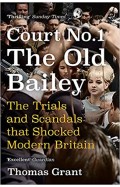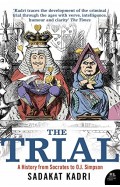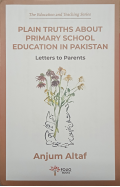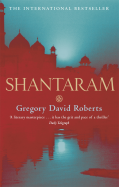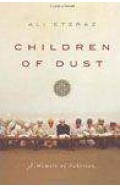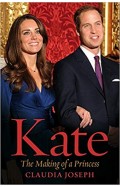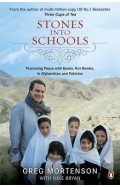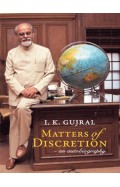- Home
- Books
- Sale
- 11.11 Sale UPTO 90% OFF
- 45% OFF
- Kafka's Last Trial: The Strange Case of a Literary Legacy
Kafka's Last Trial: The Strange Case of a Literary Legacy
By: Benjamin Balint
-
Rs 822.25
- Rs 1,495.00
- 45%
You save Rs 672.75.
Due to constant currency fluctuation, prices are subject to change with or without notice.
'A highly entertaining story of literary friendship, epic legal battles and cultural politics centred on one of the most enigmatic writers of the 20th century' Financial Times
When Franz Kafka died in 1924, his friend Max Brod could not bring himself to fulfil the writer’s last instruction: to burn his remaining manuscripts. Instead, Brod took them with him to Palestine in 1939, and devoted the rest of his life to editing and canonizing Kafka’s work. By betraying his last wish, Brod twice rescued his legacy – first from physical destruction, and then from obscurity.
In Kafka’s Last Trial, Benjamin Balint offers a gripping account of the contest for ownership that followed, ending in Israeli courts with a controversial trial – brimming with legal, ethical, and political dilemmas – that would determine the fate of Kafka’s manuscripts. This is at once a biographical portrait of a literary genius, and the story of two countries whose national obsessions with overcoming the traumas of the past came to a head in a hotly contested trial for the right to claim the literary legacy of one of our modern masters.
'A highly entertaining story of literary friendship, epic legal battles and cultural politics centred on one of the most enigmatic writers of the 20th century' Financial Times
When Franz Kafka died in 1924, his friend Max Brod could not bring himself to fulfil the writer’s last instruction: to burn his remaining manuscripts. Instead, Brod took them with him to Palestine in 1939, and devoted the rest of his life to editing and canonizing Kafka’s work. By betraying his last wish, Brod twice rescued his legacy – first from physical destruction, and then from obscurity.
In Kafka’s Last Trial, Benjamin Balint offers a gripping account of the contest for ownership that followed, ending in Israeli courts with a controversial trial – brimming with legal, ethical, and political dilemmas – that would determine the fate of Kafka’s manuscripts. This is at once a biographical portrait of a literary genius, and the story of two countries whose national obsessions with overcoming the traumas of the past came to a head in a hotly contested trial for the right to claim the literary legacy of one of our modern masters.
Kafka's Last Trial: The Strange Case of a Literary Legacy
By: Benjamin Balint
Rs 822.25 Rs 1,495.00 Ex Tax :Rs 822.25
Zubin Mehta: A Musical Journey (An Authorized Biography)
By: VOID - Bakhtiar K. Dadabhoy
Rs 472.50 Rs 1,050.00 Ex Tax :Rs 472.50
Court Number One: The Trials and Scandals that Shocked Modern Britain
By: Thomas Grant
Rs 2,011.75 Rs 3,095.00 Ex Tax :Rs 2,011.75
The Trial - A History from Socrates to O. J. Simpson
By: Sadakat Kadri
Rs 1,751.75 Rs 2,695.00 Ex Tax :Rs 1,751.75
Plain Truths About Primary School Education In Pakistan
By: Anjum Altaf
Rs 120.00 Rs 150.00 Ex Tax :Rs 120.00
Manning Up: How the Rise of Women Has Turned Men into Boys
By: Kay Hymowitz
Rs 646.75 Rs 995.00 Ex Tax :Rs 646.75
Court Number One: The Trials and Scandals that Shocked Modern Britain
By: Thomas Grant
Rs 2,011.75 Rs 3,095.00 Ex Tax :Rs 2,011.75
The Trial - A History from Socrates to O. J. Simpson
By: Sadakat Kadri
Rs 1,751.75 Rs 2,695.00 Ex Tax :Rs 1,751.75
Plain Truths About Primary School Education In Pakistan
By: Anjum Altaf
Rs 120.00 Rs 150.00 Ex Tax :Rs 120.00
No recently viewed books available at the moment.
Zubin Mehta: A Musical Journey (An Authorized Biography)
By: VOID - Bakhtiar K. Dadabhoy
Rs 472.50 Rs 1,050.00 Ex Tax :Rs 472.50
Kafka's Last Trial: The Strange Case of a Literary Legacy
By: Benjamin Balint
Rs 822.25 Rs 1,495.00 Ex Tax :Rs 822.25
Court Number One: The Trials and Scandals that Shocked Modern Britain
By: Thomas Grant
Rs 2,011.75 Rs 3,095.00 Ex Tax :Rs 2,011.75
The Trial - A History from Socrates to O. J. Simpson
By: Sadakat Kadri
Rs 1,751.75 Rs 2,695.00 Ex Tax :Rs 1,751.75
Plain Truths About Primary School Education In Pakistan
By: Anjum Altaf
Rs 120.00 Rs 150.00 Ex Tax :Rs 120.00











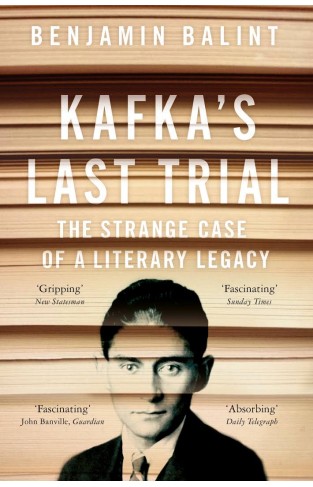
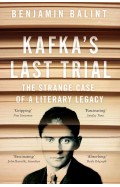
-120x187.jpg?q6)





